- General
- January 7, 2024
- 7 minutes read
The 10 Largest Companies In Russia
Russia is one of Europe’s biggest economies, with a gross domestic product of $2.2 trillion, or $15,300 per capita, according…
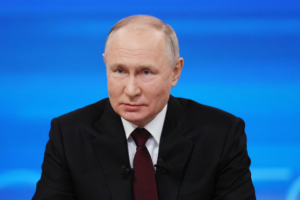
Russia is one of Europe’s biggest economies, with a gross domestic product of $2.2 trillion, or $15,300 per capita, according to the World Bank. Although highly dependent on the energy sector and less diversified than many European counterparts, the Russian economy is an important one to watch, especially as the country faces a barrage of Western sanctions following its military invasion of Ukraine.
We want to examine the ten largest companies in Russia. They include:
1. Gazprom
Revenue: $149bn
Gazprom is a state-owned oil and gas company. It is a vertically integrated company whose business covers every part of the oil and gas supply chain, from exploration to refining, transportation, distribution, and power generation.
Gazprom was the biggest gas exporter to European countries until Russia’s Ukraine invasion spurred economic sanctions from its neighbors; Norway has taken the position. Yet, Gazprom has found willing customers in China, India, and some Soviet Bloc countries to maintain its business. The company trades on the Moscow Exchange, with the Russian government owning more than 50% of its shares.
Gazprom is headed by chief executive Alexey Miller, a longtime ally of Russian President Vladimir Putin.
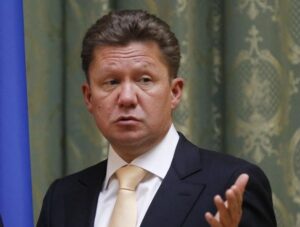
2. Rosneft
Revenue: $111bn
Rosneft is a state-owned, vertically integrated oil and gas giant. It explores, refines, transports, and distributes oil and gas products, just like Gazprom. Both companies contribute a significant part of the Russian government’s foreign earnings.
Aside from the Russian government, the two biggest shareholders in Rosneft are British oil giant BP and the Qatar Investment Authority (QIA). The company is chaired by Igor Sechin, a longtime Putin ally.
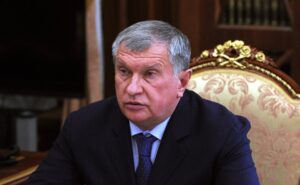
3. Sberbank
Revenue: $32bn
Sberbank is a state-owned banking and financial services giant. It operates in Russia and several other European countries. Sberbank traces its roots to a state savings bank system created in the 1800s in Imperial Russia. Now, it’s the largest Russian bank managing over $500bn of customer assets.
Sberbank is listed on the Moscow Exchange, with the Russian government owning a controlling 50%+1 share. The company is led by Herman Gref, Russia’s former economy minister and longtime Putin ally.
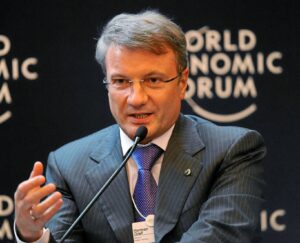
4. Lukoil
Revenue: $31bn
Lukoil is Russia’s largest non-state company. It’s an oil and gas producer controlled by Russian billionaire Vagit Alekperov. He was the Soviet Union’s deputy minister of oil production before forming Lukoil shortly after the Union’s collapse. Alekperov assembled Lukoil from the ashes of a state-owned company.
Lukoil operates across Europe, Africa, the Middle East, and North America. Its shares trade on the Moscow Exchange.
5. Magnit
Revenue: $25bn
Magnit is Russia’s largest retail chain by sales, with thousands of convenience and cosmetics stores and hundreds of hypermarkets and family stores. It was founded in 1994 by Russian billionaire Sergey Galitsky, who, in 2018, sold his shares for $2.45bn to the state-owned VTB bank.
Magnit employs over 300,000 people across Russia. Its shares trade on the Moscow Exchange.
6. Tatneft
Revenue: $17bn
Tatneft is a vertically integrated oil and gas company based in the Russian Republic of Tatarstan. It’s a state-controlled company, with the Tatarstan government holding a 34% stake. Tatneft was founded under the Soviet Union in the 1950s and was once the Union’s largest crude oil producer. It converted to a publicly-traded company in 1994, shortly after the Union’s collapse.
Tatneft is headquartered in Almetyevsk, a Russian city famous for its highly developed cycling infrastructure.
7. Novolipetsk Steel
Novolipetsk Steel, or NLMK, is Russia’s biggest steel producer controlled by Vladimir Lisin, one of the country’s wealthiest individuals with a $24bn fortune, according to the Bloomberg Billionaires Index. Lisin joined a group of businessmen who privatized Russia’s steel and aluminum industry after the Soviet Union’s collapse and ended up with a controlling share in one of the country’s major steel producers.
Under Lisin’s leadership since 1998, Novolipetsk expanded rapidly with acquisitions and became Russia’s largest steel producer. The company trades on the Moscow Exchange.
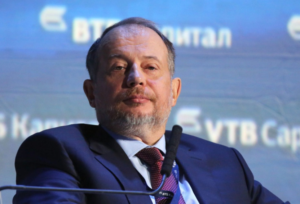
8. Nornickel
Revenue: $16bn
Nornickel is Russia’s biggest mining company controlled by billionaire Vladimir Potanin. Potanin was Russia’s First Deputy Prime Minister before teaming up with some investors to acquire Nornickel, then a state-owned company, under a controversial loans-for-shares program. He is Russia’s wealthiest individual with a nearly $31bn fortune, according to the Bloomberg Billionaires Index.
Nornickel’s massive mining operations make it one of Russia’s leading industrial polluters. The company is headquartered in Moscow, Russia.
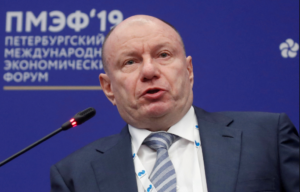
9. Novatek
Revenue: $16bn
Novatek is a gas producer, precisely Russia’s second-largest natural gas producer. The company is controlled by billionaire Leonid Mikhelson, who formed Novatek after privatizing a state-owned gas enterprise he chaired.
Novatek’s shares are listed on the Moscow Exchange. It previously traded on the London Stock Exchange but delisted its shares following sanctions from the British government.
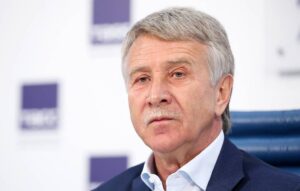
10. Surgutneftegas
Revenue: $15.5bn
Surgutneftegas is an oil and gas company headquartered in Surgut, Russia. It controls massive oil and gas reserves in the Siberian region. Surgutneftegas pumps over 1 million barrels of oil daily and employs a third of the 300,000 inhabitants in Surgut, the city where it’s headquartered.
Surgutneftegas is chaired by reclusive Russian billionaire Vladimir Bogdanov. He formed the company by privatizing a state-owned oil and gas enterprise alongside some executives following the Soviet Union’s collapse. The oil and gas giant has a famously opaque ownership structure; little is known about its shareholders. Chairman Vladimir Bogdanov once said that he did not know who owned the majority of Surgutneftegas’s shares.






